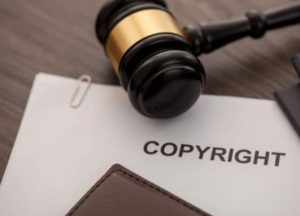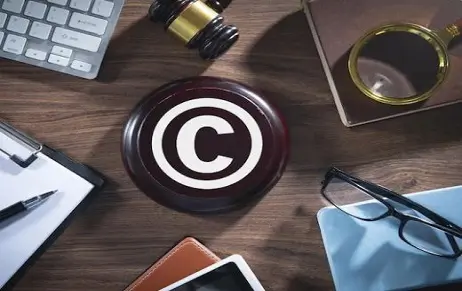Introduction A catchphrase is defined as a term, phrase or sentence repeatedly used by an…
NFTs : The Latest Technology Challenging Copyright Law
Introduction
The development of cryptocurrency has noticed a surge in the number of people trading in these currencies. Similarly, rapid growth has been seen in Non-Fungible Tokens, with more and more people entering the industry. NFTs have metadata and unique identification code that cannot be replicated. However, a variety of legal loopholes arise from these transactions due to the lack of a specific legal framework that addresses these new age concepts.
Technological advancement and innovation, to some extent, have influenced all forms of copyrighted work. Because of their easy access, those works can be easily transferred and posted online. Basic copyright laws also apply to NFTs. NFTs are only allowed if the person who designed that work is the original copyright holder, as the copyright owner automatically obtains the rights to replicate the work or fabricate another output of it.
What are Non-Fungible Tokens (NFTs)
NFT is a digital asset that can be marketed using blockchain technology. NFTs represent digital real-world objects such as drawings, stamps, and more.
NFTs technology can be seen as a new way to make money with intellectual property. Due to the distinctive feature of NFTs, the IP owner must strategize and protect his or her original creation from any potential violations. NFTs are non-identical from other fungible tokens like cryptos which are similar to each other and are, therefore capable to be used for business transactions.
Although ownership is proven by blockchain, another aspect of blockchain technology is anonymity. NFTs can be bought and sold on the market as a tangible goods can, and the unaltered record created by the blockchain provides proof of ownership of anyone who purchased NFTs.
Copyright Issues arising from NFTs
NFTs only provide access to digital assets but do not grant full ownership of those assets simply because a person owns such NFTs. However, due to the nature of digital content, it is easy for a lawbreaker to copy it. This makes it easier for the offender to take someone else’s work and use it.
Buyers of NFTs cannot sue for Copyright infringement because they are the sole owners of NFTs and not the digital content associated with NFTs. The sale and purchase of NFTs between the NFT owners or artists and buyers take place through smart contracts.
It does not allow the person to have full ownership of the digital content or assets associated with the NFTs just because the person owns the NFTs. They can only access or view or listen to digital content, and this cannot be publicly displayed, and cannot be copied. Therefore, anything for sale is a digital version of the underlying asset or content and not the content or asset itself.
NFT sales are largely uncontrolled either locally or internationally. As such, NFTs available to an international audience make it easier to simulate issues that arise in the field of intellectual property. The lack of any rules governing NFTs compels the owner to seek remedies under the copyright law by means of damages or interlocutory injunctions. Minting NFTs are unnamed from starting because of the blockchain. This weakens the ability to take legal action, making it difficult to take action even though laws provide protection.
NFTs and Copyright Infringement
NFTs are subject to basic copyright laws, as they are very difficult to monitor and control than other digital assets, and the NFT industry is reluctant to put strong protections in place. The process by which copyright owners flag a violation and demolish their unauthorized work is the same for NFTs as it would for any other art form in terms of DMCA law . NFT purchaser acquires the right to copy or otherwise reproduce it unless otherwise provided. Therefore, under the Indian Copyright Act, 1957, a copyrighted or licensed copyright holder is entitled to exclusive copyright as provided by law. In addition, Section 51 of the Indian Copyright Act, 1957 provides for certain circumstances in which artworks are considered an infringement of copyright.
However, its anonymity and lack of regulations make this process difficult. In marketplaces like OpenSea where one can compile, sell, and purchase NFTs, it is easy to remain anonymous, especially as there is little internal or external regulation. NFTs can be easy targets for “fraud” and a violation of the creator’s moral rights. Fraud can occur when people falsely claim to have copyrighted works of real art or when a person registers an NFT on a marketplace.
Additionally, since real functions are usually not stored in the blockchain, the tokens are just representative, and it becomes difficult to take down the actual function and not just the NFTs which are listed.
Conclusion
NFTs are developing an emerging market for collectors and artists to sell their signed digital assets in a way that makes unidentified copies accessible to the general public. Vendors and buyers of NFT should ensure that they understand the copyright implications of the action. Additionally, anyone who wishes to make any significant use of the NFT image (e.g., to sell, distribute or retain copies) should seek appropriate legal advice. Digital work needs more attention to copyright laws. The practical situation and law create different ideas in the mind of the creator that is somehow different. Advancements in technologies is growing so fast that the violations cannot be prevented by the laws that have been enacted. Therefore, it is clear that there is a lack of laws governing or regulating NFTs, especially when it comes to Copyright involved in NFTs.
Author: Harshit Khandelwal, 4th year student, BBA.LLB (Hons.) course. A Student of United World School of Law, Karnavati University, Gandhinagar, in case of any queries please contact/write back to us via email to [email protected] or at IIPRD.

 [Image source:Shutterstock]
[Image source:Shutterstock]

